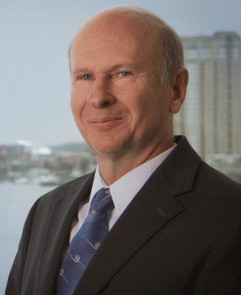
Professor & Executive Director, IMET
University of Maryland Center for Environmental Science (UMCES)
Phone: (410) 230-8802 | Email: hill@umces.edu | Fax: (410) 234 8896
- Director and Professor, IMET, University of Maryland Center for Environmental Science, 2012-present.
- Adjunct Associate and Full Professor, Department of Pharmacy, University of Mississippi, MS, 2002-present
- Fellow, Society for Industrial Microbiology and Biotechnology.
- Associate Director, Center of Marine Biotechnology (COMB), University of Maryland Biotechnology Institute (UMBI), 2007-2010
Education
University of Cape Town, South Africa (1998)
Ph.D., Microbiology
Research Interests
- Diversity and roles of microbial symbionts associated with marine invertebrates, in particular sponges
- Marine microbes, including symbionts of marine invertebrates, as sources of novel bioactive compounds with pharmaceutical potential
- Marine microalgae for production of biofuels and other bioproducts
- Marine molecular microbiology
Selected Publications
- Zan, J., O. Choi, H. Meharena, C. L. Uhlson, M. A. E. Churchill, R. T. Hill and C. Fuqua. 2015. A solo luxI-type gene directs acylhomoserine lactone synthesis and contributes to motility control in the marine sponge symbiont Ruegeria sp. KLH11. Microbiology. 161:50-56.
- Zhang, F., J. Vicente and R. T. Hill. 2014. Temporal changes in the diazotropic bacterial communities associated with Caribbean sponges Ircinia strobilina and Mycale laxissima. Front. Microbiol. doi: 10.3389/fmicb.2014.00561
- Vicente, J., S. Zea, R. J. Powell, J. R. Pawlik and R. T. Hill. 2014. New epizooic symbioses between sponges of the genera Plakortis and Xestospongia in cryptic habitats of the Caribbean. Mar. Biol. doi: 10.1007/s00227-014-2546-z
- Zhang, F., L. Pita, P. M. Erwin, S. Abaid, S. López-Legentil, R. T. Hill. 2014. Symbiotic archaea in marine sponges show stability and host specificity in community structure and ammonia oxidation functionality. FEMS Microbiol. Ecol. doi: 10.1111/1574-6941.12427.
- Wang, H., R. T. Hill, T. Zheng, X. Hu and B. Wang. 2014. Effects of bacterial communities on biofuel-producing microalgae: Stimulation, inhibition and harvesting. Crit. Rev. Biotechnol. doi: 10.3109/07388551.2014.961402.
- Waters, A. L., O. Peraud, N. Kasanah, J. Sims, N. Kothalawala, M. A, Anderson, S. H. Abbas, K. V. Rao, V. R. Jupally, M. Kelly, A. Dass, R. T. Hill and M. T. Hamann. 2014. An analysis of the sponge Acanthostrongylophora igens’ microbiome yields an actinomycete that produces the natural product manzamine A. Front. Mar. Sci. 1:54. doi:10.3389/fmars.2014.00054
- Wang, H., J. Li, T. Zheng, R. T. Hill and X. Hu. 2014. Permianibacter aggregans gen. nov., sp. nov., a novel bacterium of the family Pseudomonadaceae capable of aggregating potential biofuel-producing microalgae. doi: 10.1099/ijs.0.065003-0.
- Davis, J. and R. T. Hill. 2014. Draft genome sequence of Hawaiian sea slug symbiont Vibrio sp. strain ER1A. Genome Announc. 2:e00820-14. doi: 10.1128/genomeA.00820-14.
- Powell, R. J. and R. T. Hill. 2014. Mechanism of algal aggregation by Bacillus sp. strain RP1137. Appl. Environ. Microbiol. doi: 10.1128/AEM.00887-14.
- Montalvo, N. F., J. Vicente, R. Pittiglio, J. Davis, J. Ravel and R. T. Hill. 2014. Integration of culture-based and molecular analysis of a complex sponge-associated bacterial community. PLOS One. DOI: 10.1371/journal.pone.0090517.
- Powell R. J., T. R. Bachvaroff and R. T. Hill. 2014. Draft genome sequence of the alga-aggregating bacterium Bacillus sp. strain RP1137. Genome Announc. 2(1):e00973-13.
- Powell R. J., R. White and R. T. Hill. 2014. Merging metabolism and power: Development of a novel photobioelectric device driven by photosynthesis and respiration. PLoS ONE 9(1): e86518. doi:10.1371/journal.pone.0086518.
- Wang, D., K. Ning, J. Li, J. Hu, D. Han, H. Wang, X. Zeng, X. Jing, Q. Zhou, X. Su, X. Chang, A. Wang, W. Wang, J. Jia, L. Wei, Y. Xin, Y. Qiao, R. Huang, J. Chen, B. Han, K. Yoon, R. T. Hill, Y. Zohar, F. Chen, Q. Hu, and J. Xu. 2014. Nannochloropsis genomes reveal evolution of microalgal oleaginous traits. PLOS Genetics.10(1):e1004094. doi:10.1371/journal.pgen.1004094.
- Zan, J., Y. Liu, C. Fuqua and R. T. Hill. 2014. Acyl-homoserine lactone quorum sensing in the Roseobacter clade. Int. J. Mol. Sci. 15:654-669; doi:10.3390/ijms15010654.
- Blasiak L. C., A. W. Schmidt, H. Andriamiarinoro, T. Mulaw, R. Rasolomampianina, W. Applequist, C. Birkinshaw, F. Rejo-Fienena, P. P. Lowry II, T. M Schmidt, R. T. Hill. 2014. Bacterial communities in Malagasy soils with differing levels of disturbance affecting botanical diversity. PLoS ONE 9(1): e85097. doi:10.1371/journal.pone.0085097
- Blasiak, L. C., S. H. Zinder, D. H. Buckley and R. T. Hill. 2014. Bacterial diversity associated with the tunic of the model chordate Ciona intestinalis.ISME J. 8:309-390.
Biosketch
Dr. Russell Hill earned his Ph.D. in Microbiology from the University of Cape Town, South Africa. His research focuses on the investigation of symbiotic bacteria associated with marine invertebrates, in particular, sponges. A recent interest of Dr. Hill’s laboratory is the production of biofuels and other useful compounds by marine microalgae, specifically, the role of symbiotic bacteria that improve the growth and stability of microalgal cultures.
Dr. Hill is a Fellow of the Society for Industrial Microbiology and Biotechnology. He advises five graduate students in the MEES Program and was the recipient of the 2009 MEES Graduate Student Award, selected by vote of the MEES graduate students.


